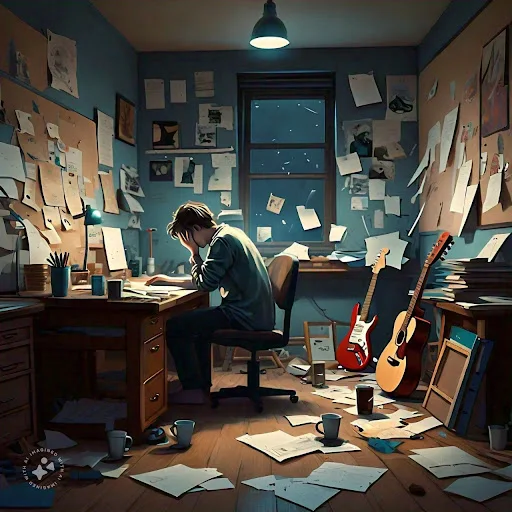The Shadows Behind Creativity: Understanding Depression, Escapism, Burnout, Intrusive Thoughts, and Spacing Out (Part 1)
Introduction
Creativity is often seen as a gift, a powerful force that brings inspiration, beauty, and innovation into the world. Yet, beneath the surface, many creatives encounter emotional and mental challenges that can make their journey tumultuous. Depression, escapism, burnout, intrusive thoughts, and zoning out aren’t just occasional struggles—they are persistent realities for many. This article explores each of these hidden battles and offers practical advice for creatives to navigate them with resilience.
The Connection Between Creativity and Mental Health
Creativity and mental health are intertwined in complex ways. The process of creation often demands vulnerability, as creatives tap into deep emotional reservoirs to bring their ideas to life. This level of emotional investment can sometimes lead to a greater risk of mental health struggles, from self-doubt and perfectionism to intense emotional swings.
Creative work also brings unique pressures: the need to innovate, the fear of failure, and the challenge of being authentic in a world filled with critique. It’s no surprise, then, that mental health concerns are common among creatives. Recognizing these struggles is the first step toward managing them.
Depression – When Creativity Feels Like a Curse
Understanding Depression in Creatives Depression in creatives often feels like a shadow that dims the once-bright glow of their passion. Instead of feeling joy in their work, they may experience a constant undercurrent of hopelessness or doubt. Creatives facing depression might feel disconnected from the very things that once brought them happiness and meaning.
For example, famous artists like Vincent Van Gogh and Sylvia Plath channeled their inner turmoil into their art, but depression took a heavy toll on them, sometimes blurring the line between inspiration and despair. For a modern-day creative, this same struggle persists in quieter forms—feeling unworthy of their talent, doubting their work, or losing joy in their creations.
Strategies for Managing Depression
Seek Professional Help: Therapy can provide tools for understanding and coping with depression, helping creatives rediscover meaning in their work.
Set Small Goals: Accomplishing small, manageable tasks can help build momentum and offer a sense of progress, even on days when motivation is low.
Practice Mindfulness: Journaling and meditation can help creatives stay present, processing emotions instead of suppressing them.
Community Support: Finding a supportive community of like-minded individuals can be profoundly helpful, as sharing struggles can often ease the burden.



👏🏼
ReplyDeleteVery deep. Keep on keeping on.
ReplyDelete